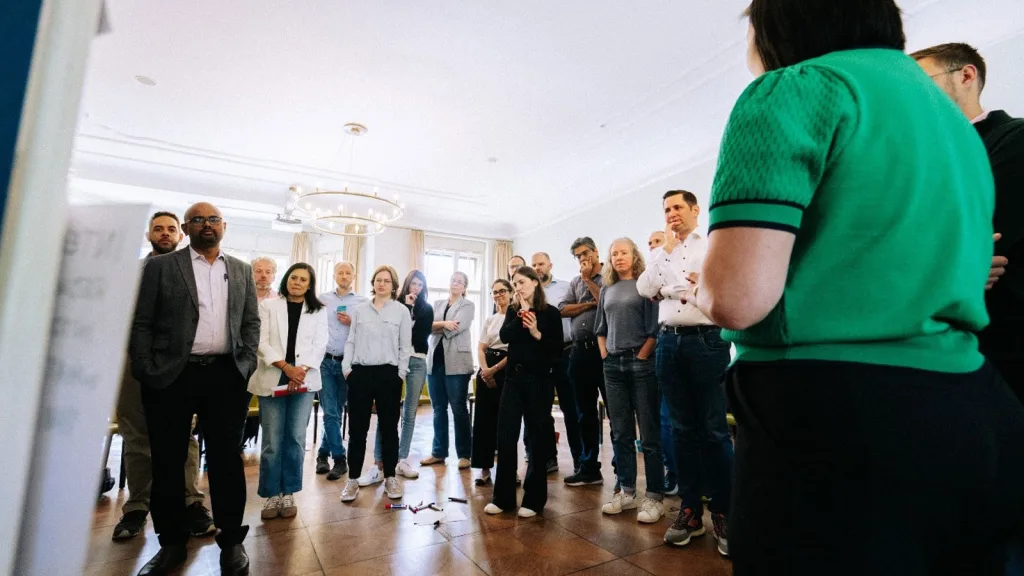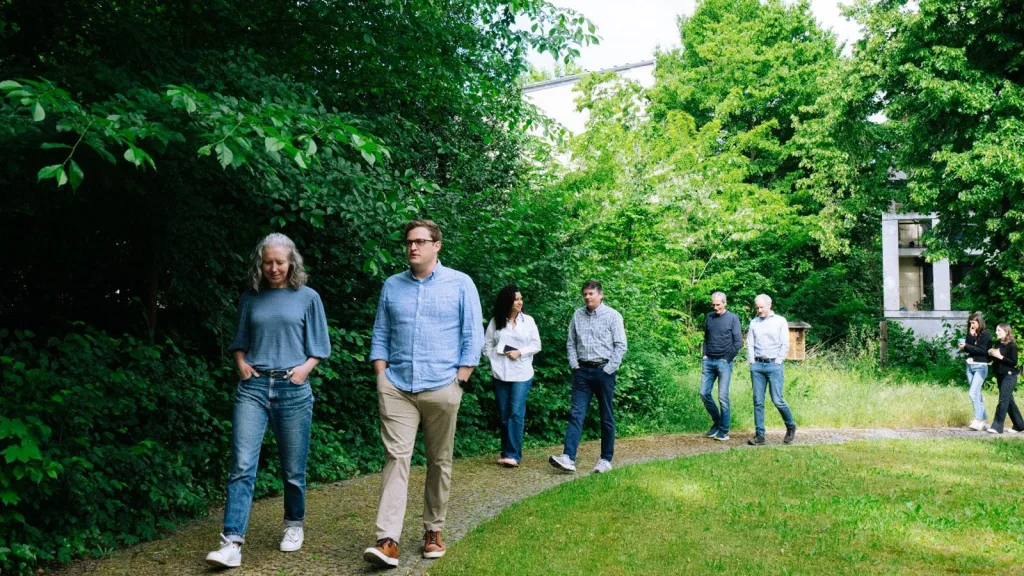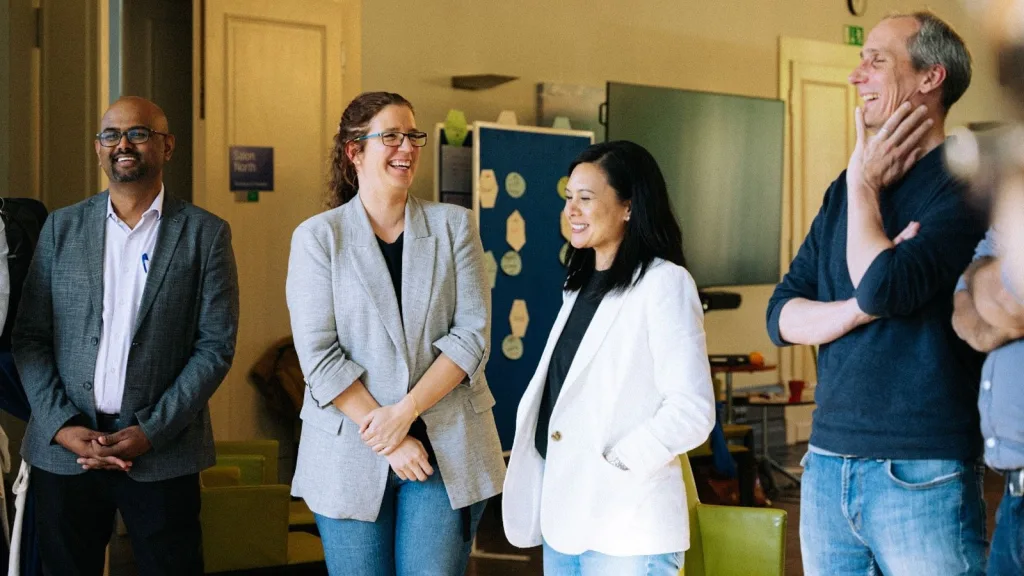This post was originally published on WBCSD
Potsdam (Germany), 20–23 May 2025: The World Business Council for Sustainable Development (WBCSD) welcomed climate leaders from around the world to Potsdam for its third Heads of Climate Base Camp—an immersive, four-day retreat held just a few meters away from Tiefer Lake. The program brought together around 20 Heads of Climate from global companies, offering them a rare opportunity to step back, navigate complex climate challenges, connect deeply with peers, and accelerate action on the path to net zero.
Led by Thomas Bruhn (Research Institute for Sustainability, RIFS) and Jenny Kwan (Director, Climate Action & Accountability, WBCSD), the Base Camp offered more than a typical workshop. Through open dialogue, shared reflection, and guided sessions in the calm setting of RIFS’ Kleist Villa, the event created a space where trust could be built, roadblocks acknowledged, and actionable paths forward defined.
From Shared Challenges to Collective Action
Throughout the retreat, participants engaged in deep exchanges about the shared challenges of corporate climate leadership—from decarbonization of value chains and Scope 3 accounting to governance, accountability, and cross-functional collaboration. Discussions revealed strong common ground across industries and geographies, highlighting the systemic nature of the obstacles—and the opportunities—for advancing climate action.
Guest speakers further enriched the discussions with strategic perspectives and insights. Ovais Sarmad, Vice-Chair of the Greenhouse Gas Protocol Steering Committee and former Deputy Executive Secretary of the UNFCCC, shared his own leadership journey and gave valuable advice on how to navigate the challenges in the climate sphere. Nico Wunderling and Donovan Dennis from the Potsdam Institute for Climate Impact Research (PIK) shared the latest findings from their research on climate-related tipping points in the Earth system and engaged in an insightful discussion with the group. Their session sparked a deeper reflection on how to translate complex scientific findings into actionable business strategies. Participants discussed the challenge of aligning long-term climate science with short-term corporate decision-making, emphasizing the need for stronger internal narratives and better integration of scientific insights into company-wide strategies.
It’s absolutely not another event—it’s an experience. It gives you the time to think, comprehend and to continue the discussion in another moment. It’s a unique opportunity.
– Alexandros Theodoropoulos, Sustainability Director at Philips

A Space to Reflect, Connect and Recommit
As with previous years, the Base Camp fostered a strong sense of community among participants, many of whom expressed renewed clarity and motivation by the end of the retreat. With time for individual reflection, peer coaching, and nature-immersive activities, the program fostered strategic thinking and supported participants in gaining a clearer sense of agency and alignment.
A key feature was the development of a personal action plan, empowering each leader to translate the retreat’s learnings into concrete steps they could take back into their organizations and daily leadership practices.
It’s been a safe space to share common dilemmas and reflect on challenges both from a corporate and systems perspective. I’m really, really recharged being here. and I look forward to going back and driving the, the climate agenda at IKEA with greater clarity.
– Sriram Rajagopal, Head of Climate and Air Quality from Inter IKEA Group

Looking Ahead
With the 2025 edition of the Base Camp now concluded, what remains is a sense of renewed momentum, strengthened relationships, and a shared commitment to systemic transformation.
I think this year’s cohort discovered that what felt paralyzing alone can be tackled collectively. There is clarity on how they can move forward and turn this insight into collective action.
– Jenny Kwan, Director, Climate Action & Accountability, WBCSD
Stay tuned for updates on the next edition of the WBCSD Heads of Climate Base Camp and how you can be part of this growing community of committed climate leaders. For more information on future events and WBCSD’s Climate Action initiatives, contact climate@wbcsd.org.

The post WBCSD Heads of Climate Base Camp 2025: Recharging Leadership for a Net Zero Future first appeared on WBCSD.




0 Comments